Seiko Prospex Diver’s 1968 Reinterpretation SPB185 & SPB187 (Live Pics & Price)
The classic 1968-inspired diver's watch, with new aesthetics for 2020.
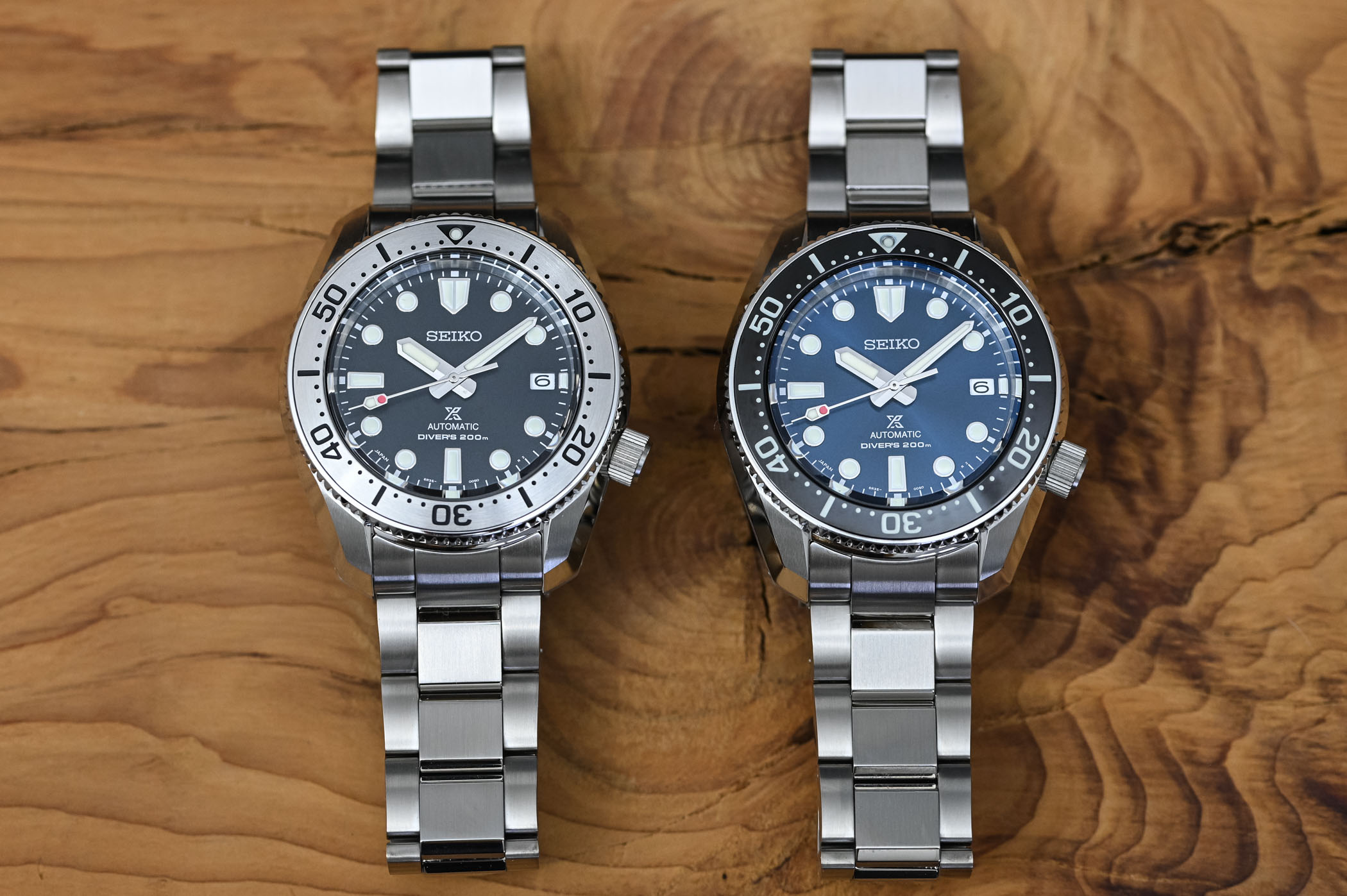
This isn’t the first time that Seiko brings a watch in its Prospex collection inspired by the classic Hi-Beat 1968 diver. At Baselworld 2018, we’ve seen two models that were walking in the footstep of the reference 6159-7001. There was the ultra-faithful SLA025 (which has been done in blue this year, with the SLA039) and, more accessible, there were the SPB077 and SPB079. Needless to say, both models were perfect examples of Seiko’s savoir-faire in diving instruments. Today, the Japanese brand releases another pair of watches, the SPB185J1 and SPB187J1, once again built around the design of the 1968 diver… But these are more than just simple colour updates.
The 1968 diver has recently been a major source of inspiration for Seiko. While not the very first dive watch of the brand (that the 62MAS), the 6159-7001 could be considered as the one that laid the foundation for the brand’s design codes, which are still in use today. It indeed already featured all elements that made modern Seiko diving instruments easily recognizable – the angular lugs, the crown at 4 o’clock, the typical applied indexes and hands…
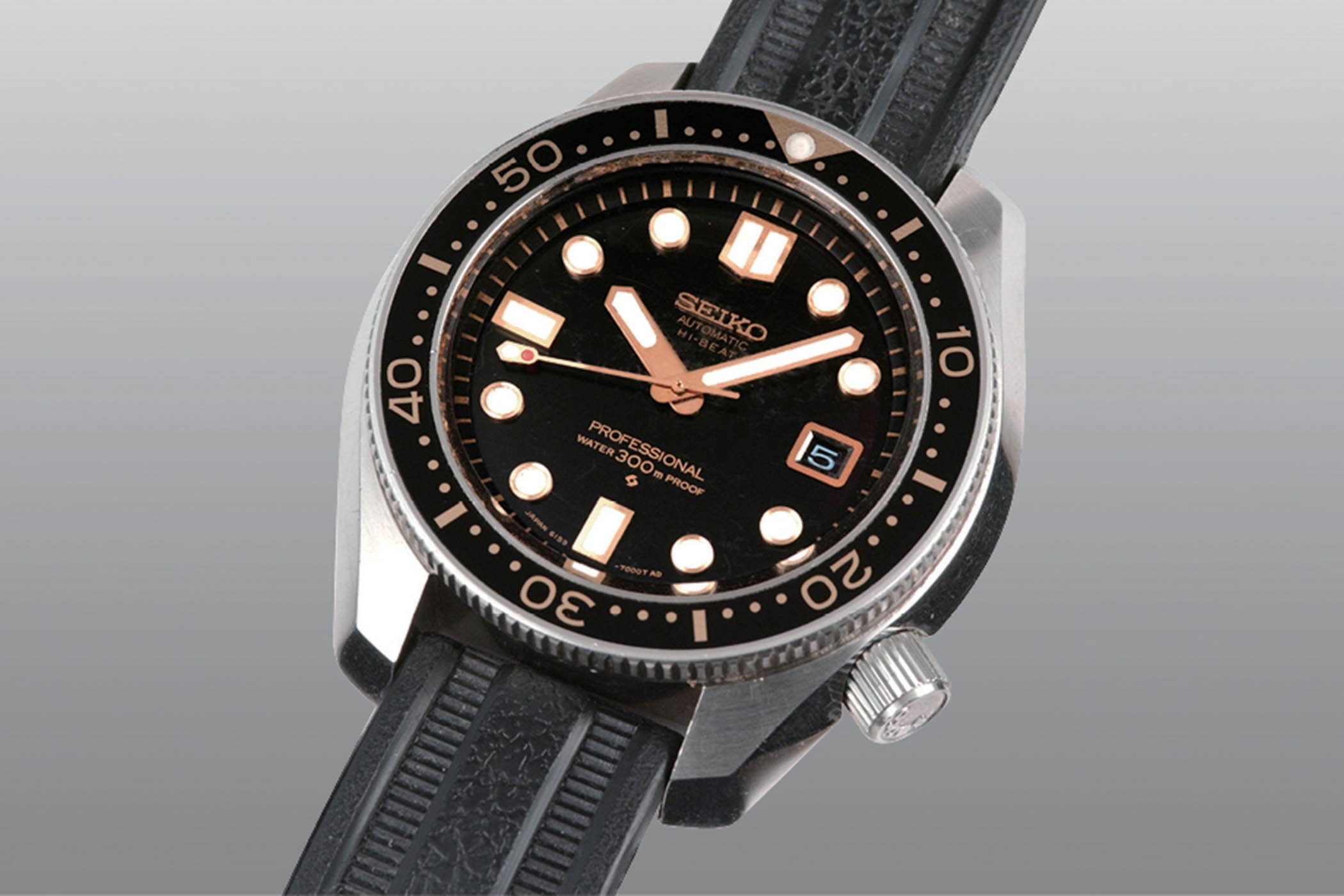
About this watch, we said “In 1968, three years after the creation of the 62MAS, Seiko delivered another impressive and innovative professional dive watch, the Automatic Diver 300m Ref. 6159-7001. This watch was not just an update of its predecessor. In just three years, Seiko had doubled the water-resistance, improved the functionality and legibility of the watch and gained drastically in precision. The Automatic Diver 300m was the first hi-beat diver’s watch on the market. Its massive size, its signature design, its iconic gilded accents; all of that fostered the legend behind the watch that is a hot item on collector’s lists.”
Following the release of the vintage-inspired SLA025, Seiko also created a fairly priced model, with modernized design, the SPB077 – which was reviewed here. A nicely designed watch for sure, yet with the inconvenient of many Seiko watches, a 44mm diameter. However, we know that recently, within the SPB collection, Seiko has done a lot to please its fanbase, by reducing significantly the size of its watches. Take for instance the 62MAS Interpretations SPB143, SPB147 and SPB149, now sized at 40.5mm. Or the “Captain Willard” Reissues SPB151 and SPB153, with their 42.8mm diameter and short lug-to-lug measurement. Well, you’ll be pleased to know that the 1968-inspired SPBs are no exception to this new rule!
So here we are, face to dial with these new SPB185J1 and SPB187J1 and the first thing to note is indeed the “downsizing” effect. When the SPB077 had a 44mm x 13.1mm case, these new models are 42mm in diameter with a height of 12.5mm. Yes, these are not small watches, objectively, but two comments. First of all, we can only applause this move from Seiko, which is reducing the size of the watches. 2mm less is not neglectable and can properly be felt on the wrist. Second, the inspiration, the 1968 Hi-Beat diver, was a fairly massive watch too and these new SPBs somehow had to follow suit.
The second evolution concerns the shape of the case itself, which is even more dynamic and imposing than before. The lugs, these ultra-angular and bulky lugs, are even better designed than the SPB077 and greatly participate in the visual robustness of this watch. Look no further if you’re in the need of an instrument-like Seiko. The watch has an imposing presence that suits the model, with a wide polished bevel running along the caseband. The crown is classically at 4 o’clock and screws down. Other noticeable specifications are the presence of an anti-reflective sapphire crystal, a solid steel caseback (screwed) and a water-resistance rated at 200 metres.
Regarding the dial, Seiko also brings its dosage of updates here. While the indexes are typical of the 1968 watch, they have been slightly redesigned, with a more pointy element at 12 o’clock and a luminous plot at 3 o’clock (absent on previous models). The hands are also more faithful to the original concept (no arrow hour hand anymore) while the second hand is now equipped with a luminous white-and-red “shovel-like” tip (a feature found in more Seikos). Finally, the luminous material here (the brand’s Lumibrite) is white coloured for a more technical look.
Two versions are presented. First, seen above, is the SPB187J1 with a black bezel’s insert and a brushed blue dial – a very attractive combination, in all fairness. The second model has a monochromatic look, with its matte black dial and brushed metallic bezel’s insert that matches the case – giving this edition a bulkier look, despite having the same dimensions.
Inside the case, no surprise as we find the in-house automatic calibre 6R35, the brand’s classic mid-range movement. Beating at 3Hz, this time-and-date calibre stores a comfortable amount of energy, boasting a 70h power reserve when fully wound. Again, this is a pleasant upgrade compared to the 6R15 found in the SPB077.
Finally, the new Seiko SPB185J1 and SPB187J1 are both worn on a traditional 3-link brushed stainless steel bracelet. As you can see in the image above, the clasp is fairly complex, since it features security pushers and a clever diving extension. A nice touch for a watch in this price range.
Availability and price
The Seiko Prospex Diver’s 1968 Reinterpretation SPB185J1 & SPB187J1 are released as members of the permanent collection and are available now at retailers (November 2020). Each model will be priced at EUR 1,250.
More details at seikowatches.com.

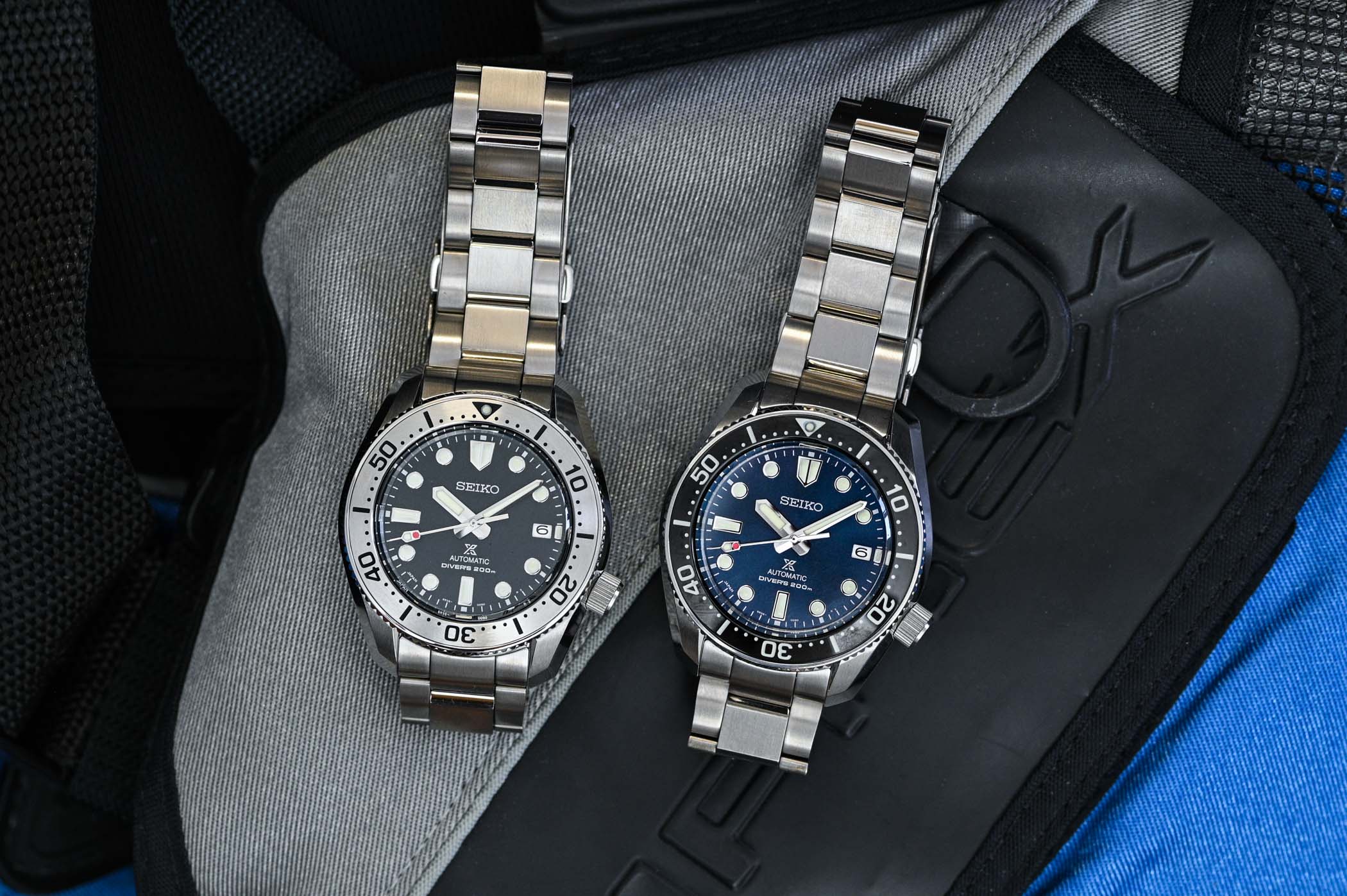
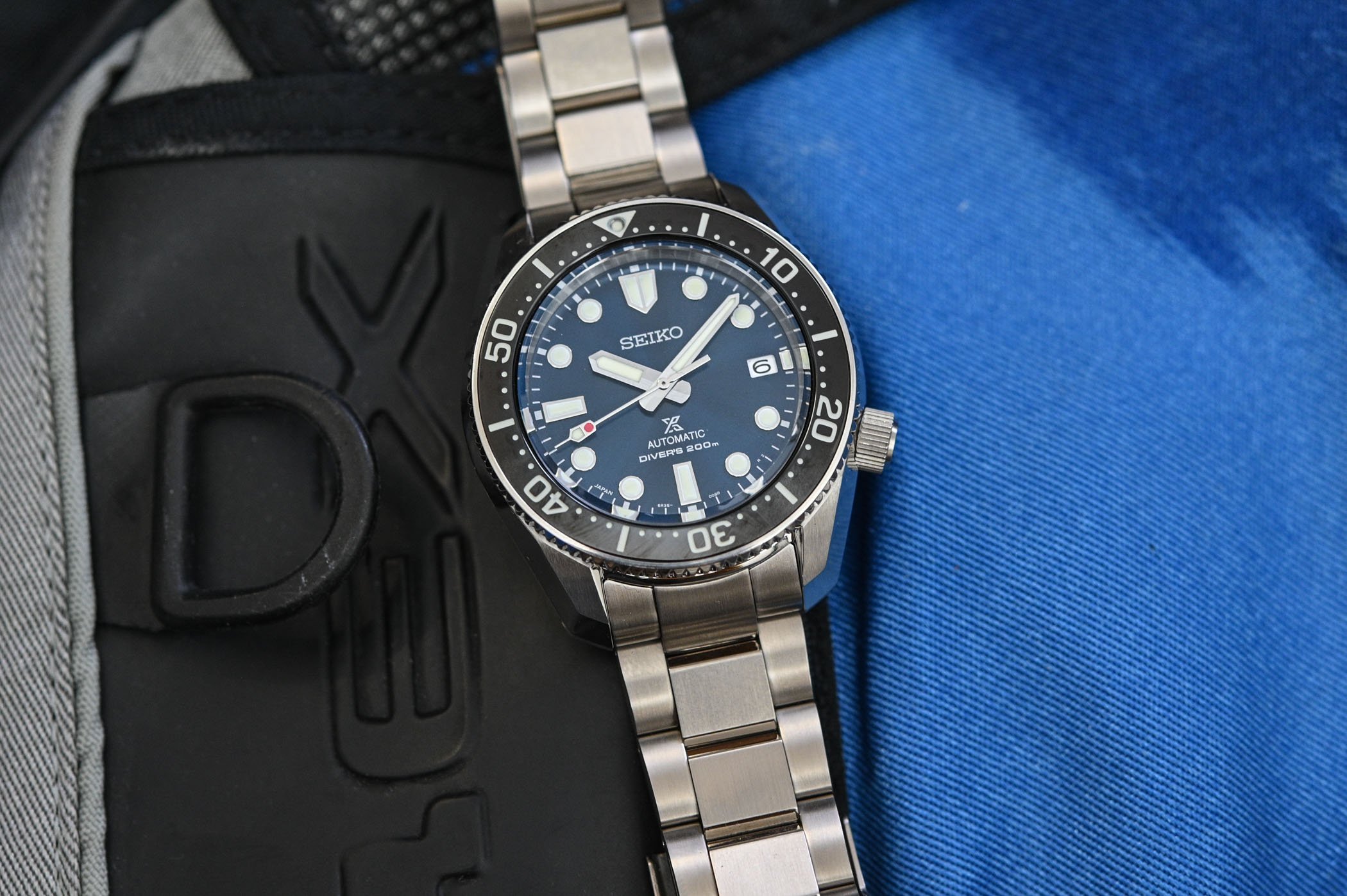
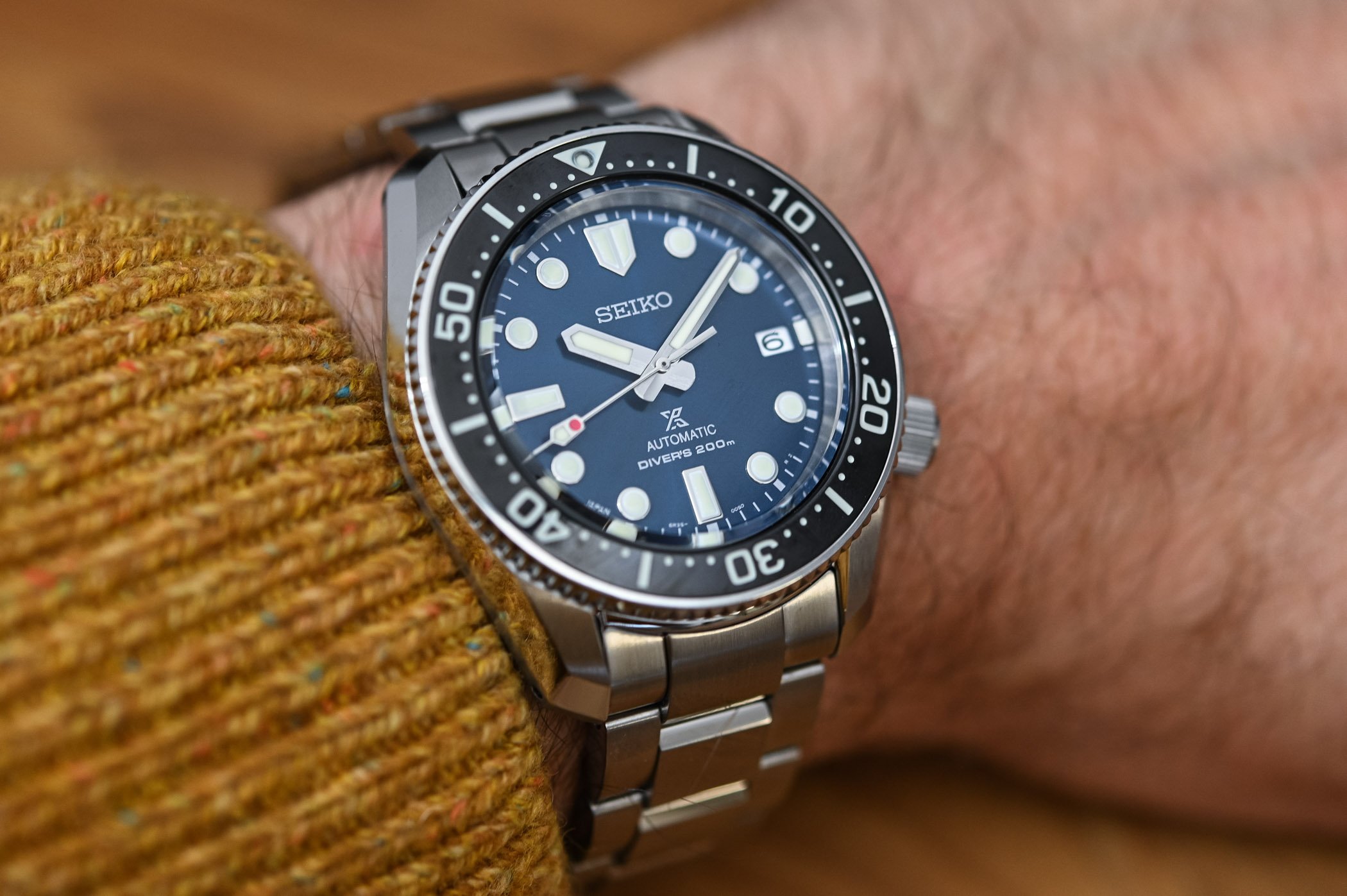
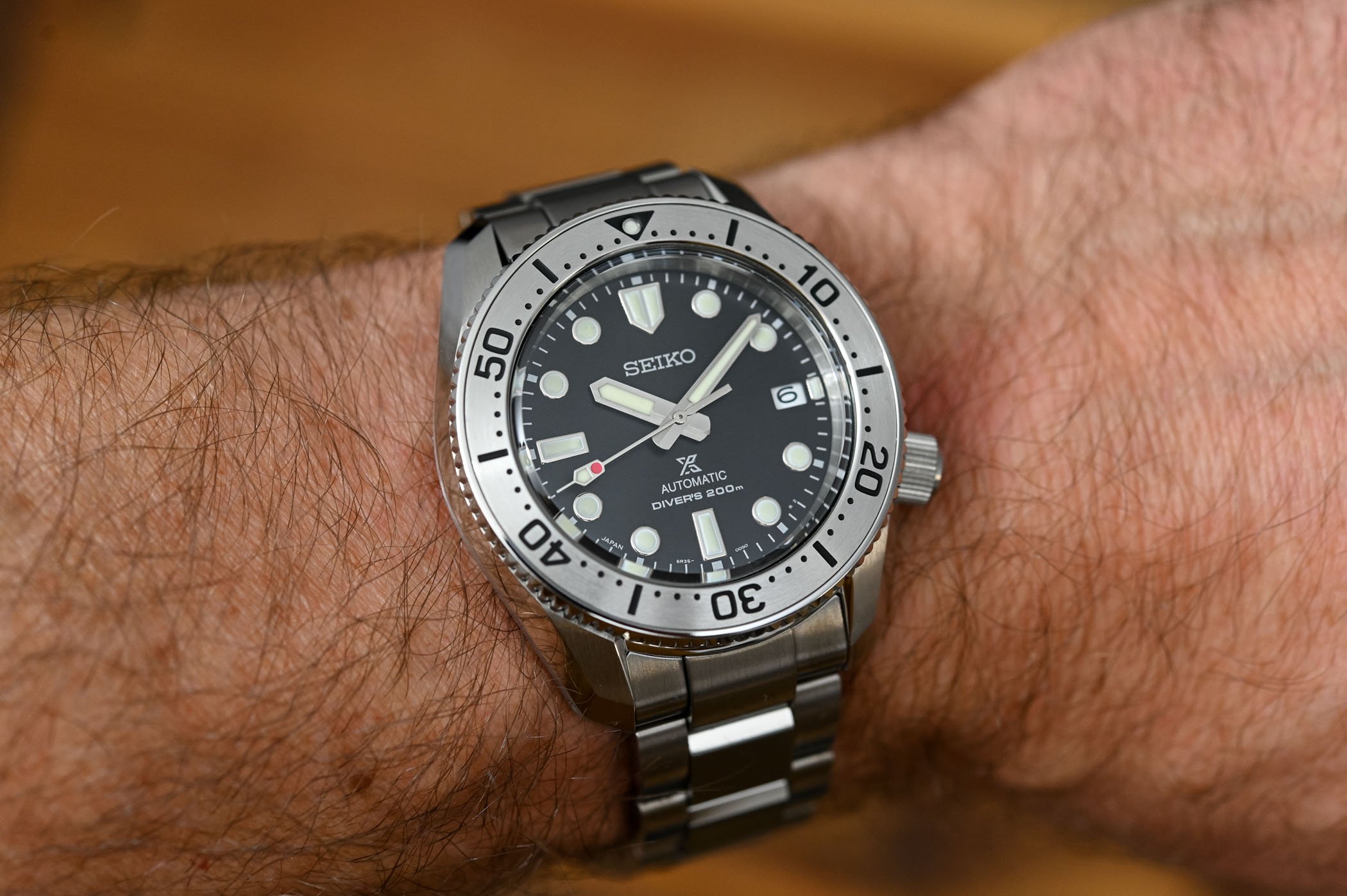
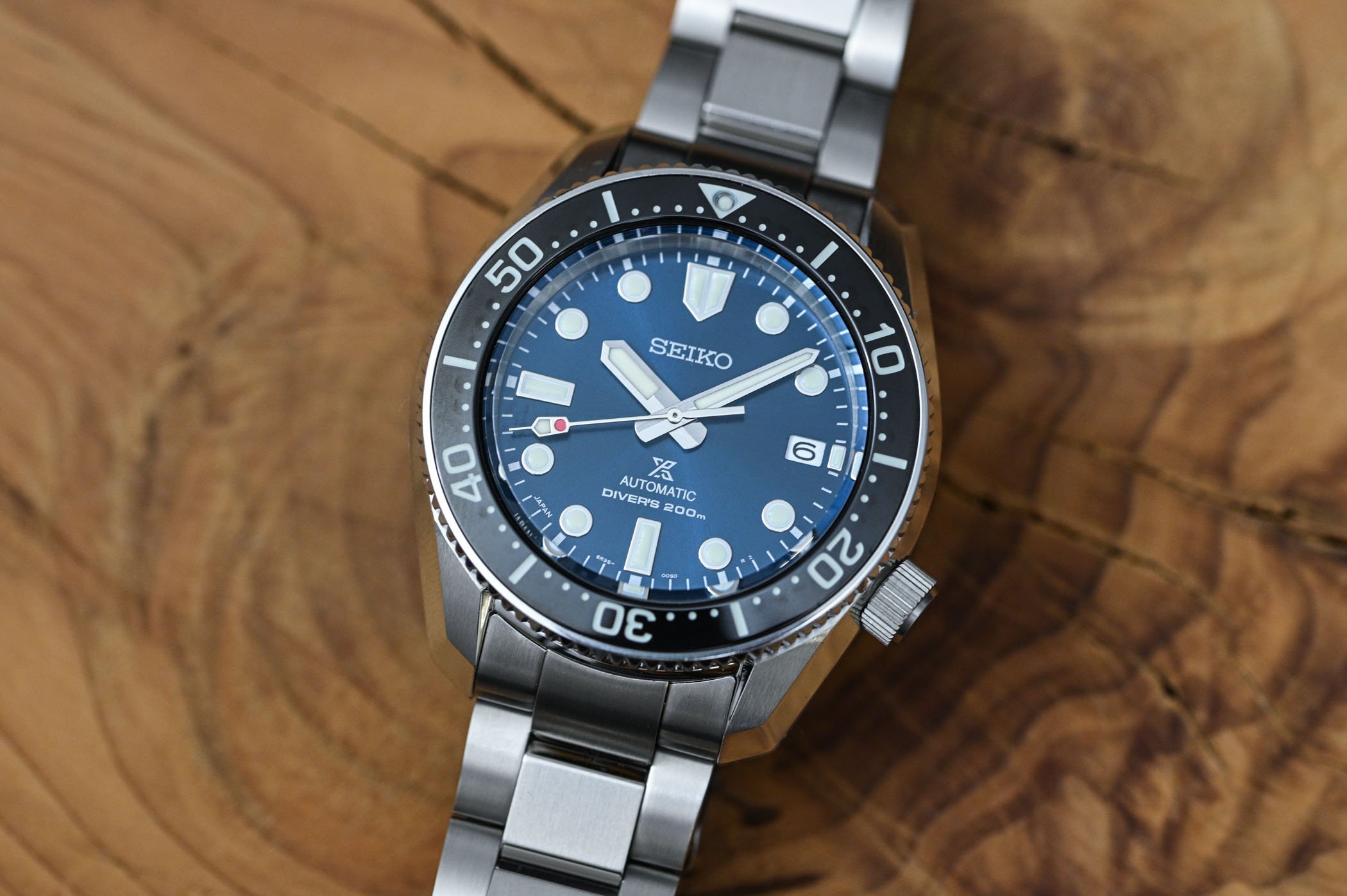
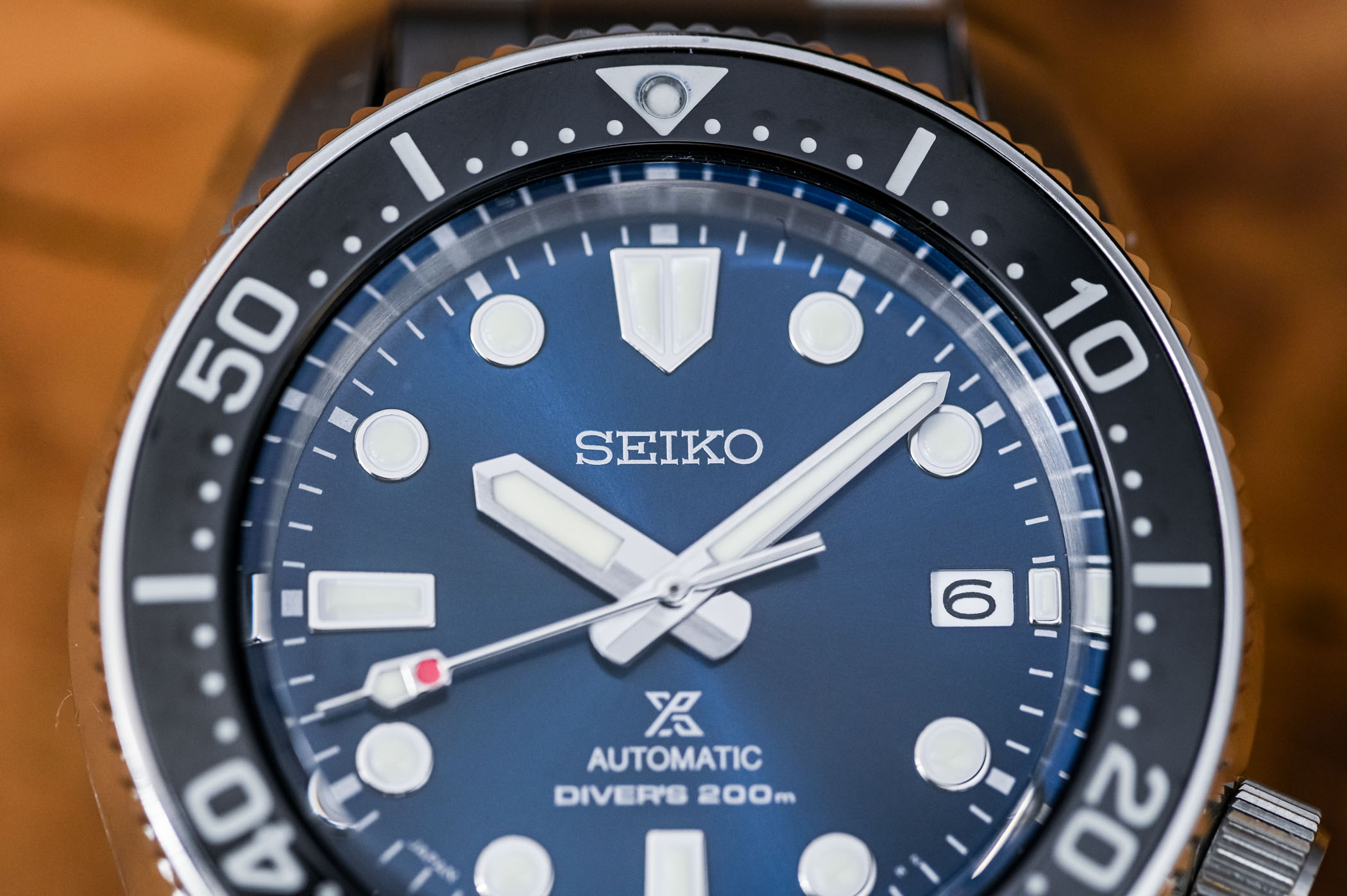
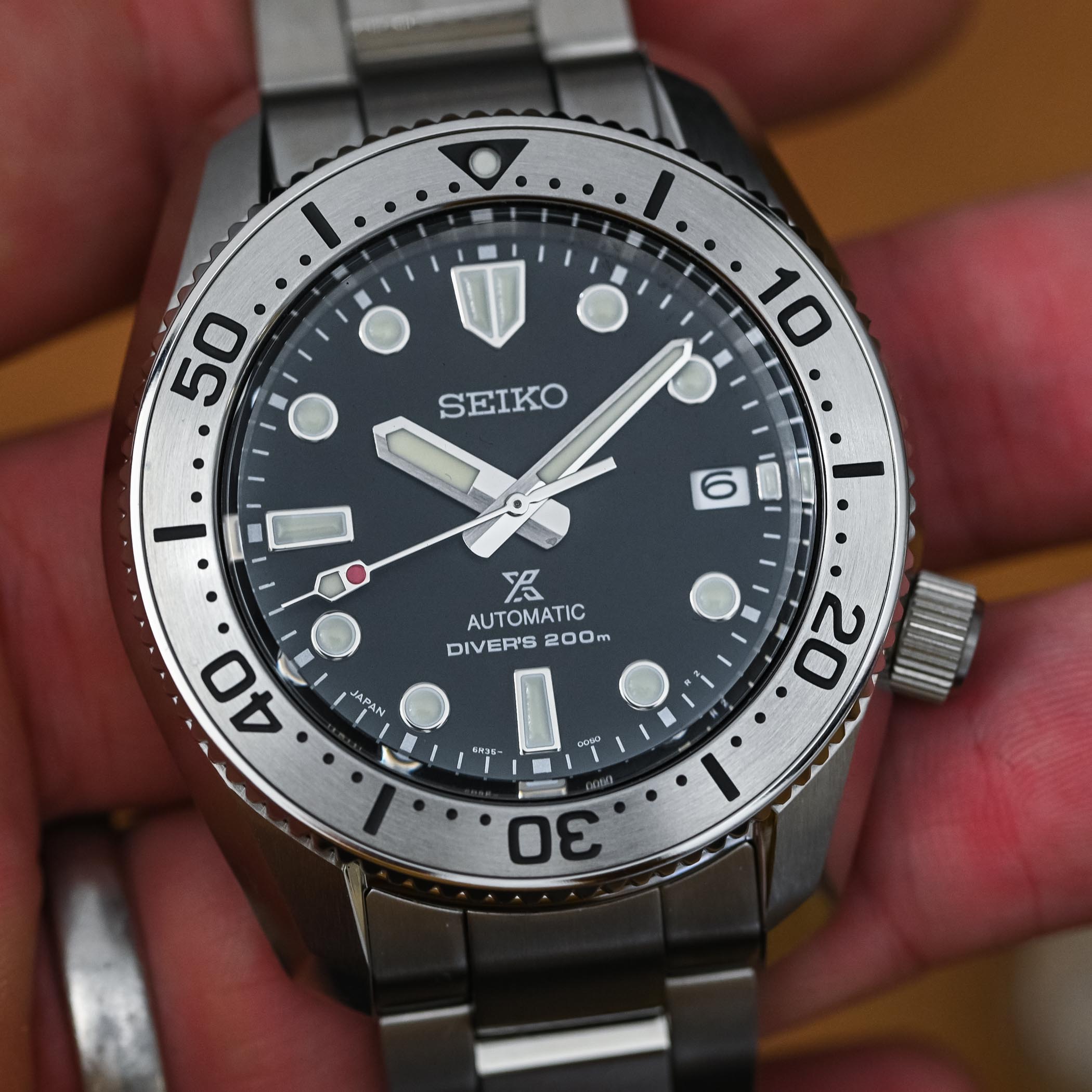
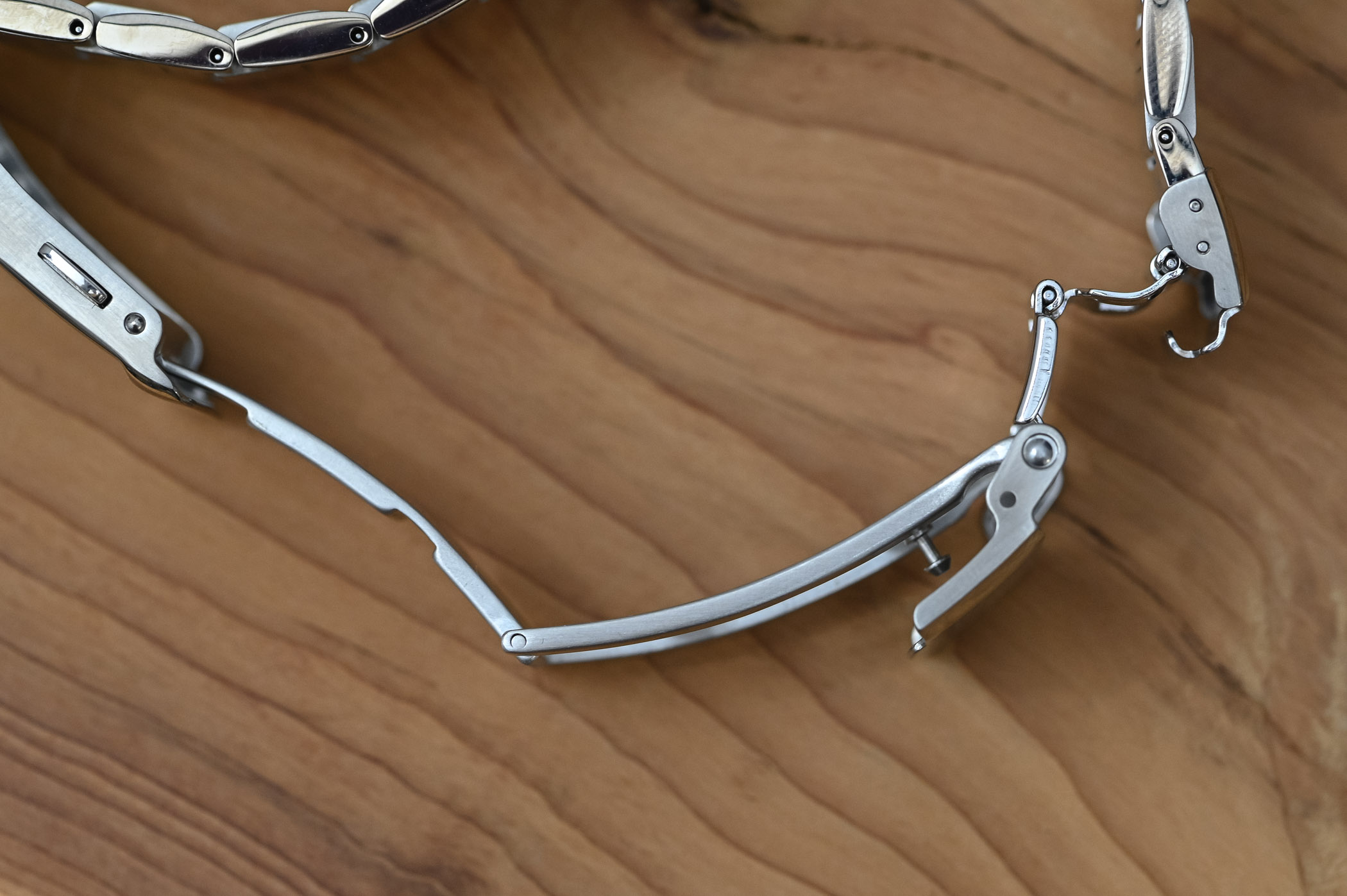
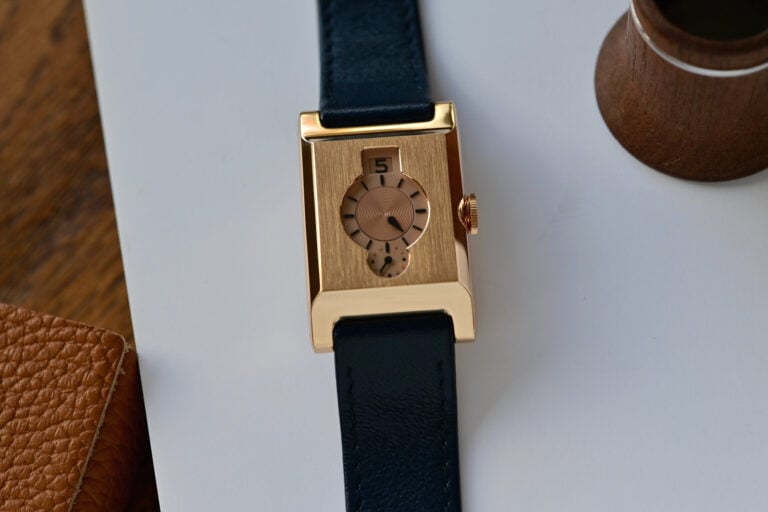
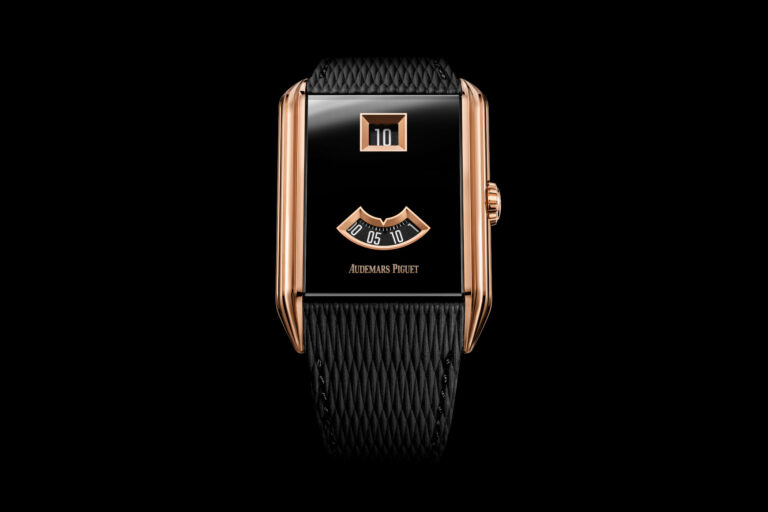
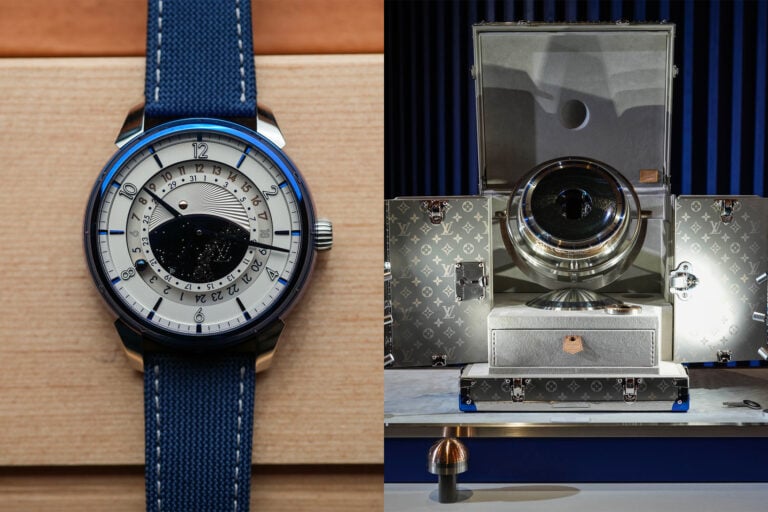
8 responses
Interesting. The original looks better though.
Seiko está mirando al futuro. Si cada dos meses sacan variante de diseños con mismos componentes. De aquí al 2022 no sacan un movimiento con características de mercado, estarán a pasar a la historia. Lo bueno está por llegar.
Not feeling these, but I tend to let my dislike for bracelets (Royal Oak and full-metal square G-Shock notwithstanding) cloud my judgment. Will withhold final judgement until I see images of them on rubber straps.
In any case, the SLA025 looks way better. Of all the recent Prospex “budget” reinterpretations of Seiko dive classics, only the Willard-X (especially the Green SPB153 variant) looks better than its expensive SLA sibling, mainly thanks to the more balanced proportions of its fractionally smaller case. For the 62MAS and this the 1968 diver, it’s the SLA models that are clear winners.
well… now the only thing left to do for Seiko is remember they also have the 6L line of movements, and realize that the 6R line is insulting in the 1k range (unless it’s “made up” by let’s say an enamel dial)… having such an “homage” to a high tech hi beat 5hz diver with this… bland, technologically simple, ancient and completely unremarkable is such a shame. i’ll stick to my uncomfortable MM300 beast. at least it’s more “faithful” to the spirit of the original
Heads up, first sentence says Propsex, it’s been 2 weeks and it’s still there lol
Oups… and now corrected
Close but no cigar. Seiko continues do damage its own historical charisma by introducing a reissues and remakes of originals which have very little to do with them, both functionally and aesthetically.
Give me a SLA023 that’s at the most 13.5mm tall and 49mm lug to lug. A non 2 dimensional stamped sheet metal looking seconds hand would be a nice bonus. Otherwise I’m onboard.